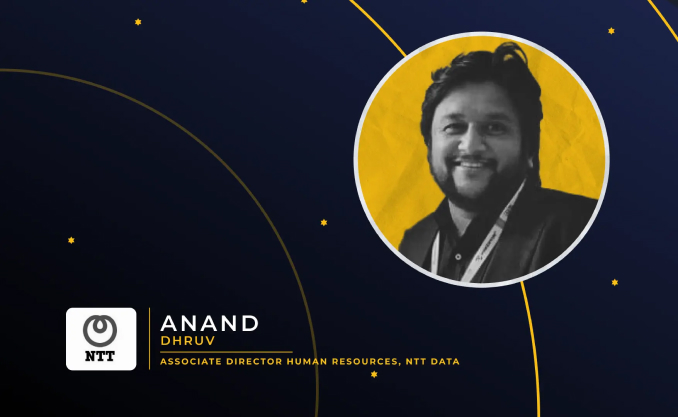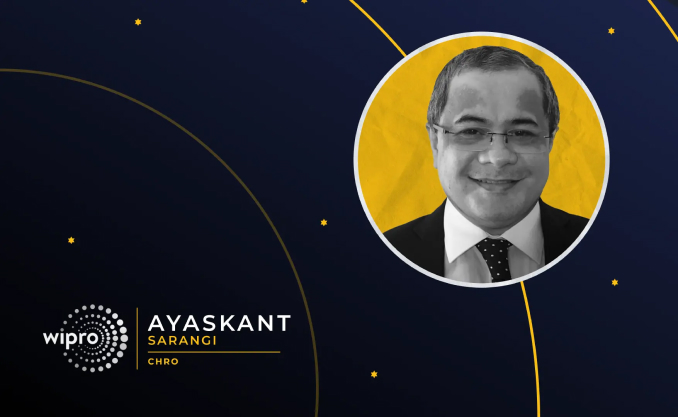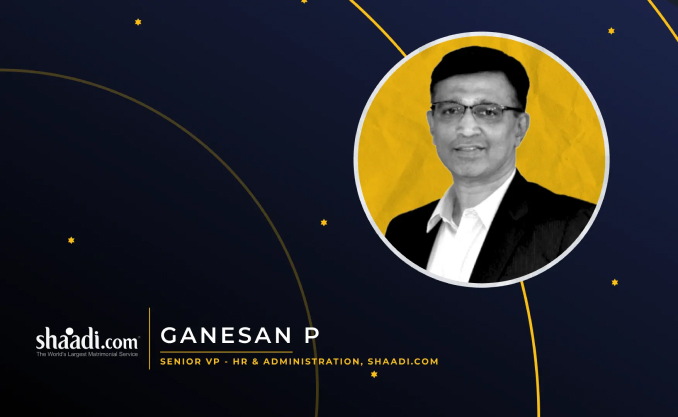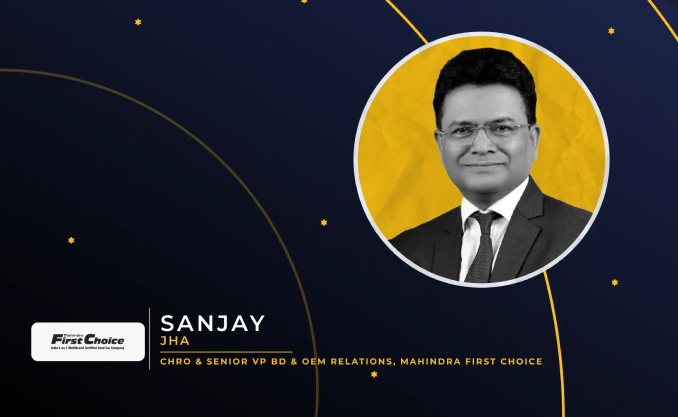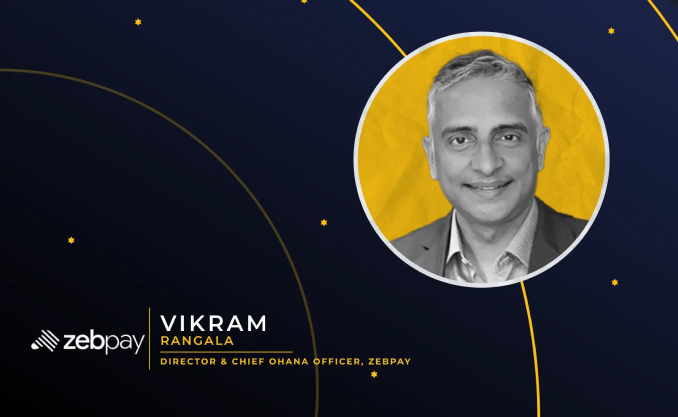Having spent over 15 years dedicated to the recruitment, staffing, talent acquisition, stakeholder & vendor management, Vijayeta is presently working as the Delivery Head at Sellcraft Global prior to which she worked with Impact Associates and Dataglove (part of Persistent Systems) as a Senior Consultant and as a Senior IT recruiter at Suvin Technologies.
According to Vijayeta, “It is all the more important for freshers and relatively less experienced employees to avoid seeking only work from home options and try to attend their work physically to learn, acclimatize and assimilate knowledge as it helps to showcase his / her work ethic and capabilities and helps earn the manager’s confidence and trust which may lead to greater responsibilities and rewards.”
Vijayeta points out how self-learning and upskilling have now become a necessity and how it is important that candidates become more active and possess good industry knowledge. These are the main points that recruiters are needed to identify.
Would you like to briefly tell us about your background and your experience in the industry?
I come from a Defence Background. My Father is a Retired Lieutenant from the Indian Army. I am also an Air Wing NCC ‘C’ certificate holding cadet with an A grade, Toastmaster, as well as a member of the IronLady Board Member community. I have over 15 years of experience in people management as a trainer, a strategic thinker, and a visionary. Presently I am working as the Pan India Delivery Head of Recruitment and Staffing at Sellcraft. Being with a consulting firm of this size and scale over the last six years, I manage several diverse teams that I support through various aspects of recruitment and hiring.
During my previous assignments, I managed the recruitment function and worked as the Senior Consultant at Impact Associates & Dataglove (Now part of Persistent Systems) preceded by serving as the Senior IT recruiter at Suvin Technologies, a Singapore-based company where I had started my career.
Working at a large consulting firm I am required to manage several stakeholders. Name any noteworthy MNC and chances are they would be one of my clients. I handle eleven to twelve managers reporting to me, each of whom has their own leads running their respective teams who I support and work with. When you have been working in the industry as a consultant (or outsourcing) for ages, the best part is that you tend to know how to meet the needs of the corporates or MNCs you are dealing with. You know how they place requirements or demands and how their unique recruitment and Hiring process flows. By virtue of experience, you know the ins and outs of how it would go. This is immensely helpful when you are managing a team of over 280 recruiters delivering permanent contracts, BPOs, KPOs, and various other requirements.
We all are now moving towards hybrid work which is increasingly coming in the picture. What are your thoughts on this?
A hybrid work model is increasingly getting popular, and it empowers flexible organizations. It ensures unforeseen situations like lockdowns or pandemics will not affect productivity at work. By and large, in our industry, it is quite convenient, especially for people who are into recruitment at the fresher level. As one cannot always learn everything at home over phone and video calls, these employees can always physically go to the office and see how things work. This is a boon for the new generation, or for those with less than five years of experience, mid-level management, and those who are changing their jobs. When the company is fresh, or a start-up, it is important for new employees to be physically present and understand the culture. They are unknown quantities to their managers and need to gain trust and earn their worth.
What according to you is the candidate's perspective on your side? Are candidates okay to come to the office now?
There is a chunk of people who are ready to move out of their homes and come to work but they need to be informed by recruiters or by their company. All companies cannot ensure access to all facilities when people are working from home 24×7. Aspects that may tend to get affected include data security, network, and cloud access, general camaraderie between employees and teams, guidance from seniors, grooming of juniors, etc. Hence, the physical presence of employees at the workplace whenever possible is the best solution and still beats all other alternatives.
Building on top of this topic, what are some of the common mistakes job seekers tend to make in the current context?
When it comes to attending interviews, often candidates develop cold feet. We have seen people coming up with curious and creative excuses like, I have network issues, my internet is not working, a guest has arrived unexpectedly, or I need to visit the hospital. They need to make up their mind and apply for a job only when they are ready for a change. They will be more respected by their companies as well as by recruiters.
It is important for the job seeker to know that the recruitment process has evolved nowadays, and candidates do not always need to avail leave and physically travel for an interview. They can attend interviews online themselves. Also, if a candidate is fake the interviewer can easily identify this while conducting the interview. Sometimes, after being rejected, candidates tend to connect with an alternate recruitment agency in hope of landing the same job, but they forget that all major companies keep track of candidates in their CRM.
Candidates who fail to mention all facts invariably end up getting rejected, or worse, getting terminated even after joining.
What could be your advice to other HR leaders as well as recruiters to convert candidates holding multiple offers? What should be done by companies post-offer to retain them?
Nowadays, several candidates hold at least five to six offers in hand before saying yes to one particular offer. So, companies need to adapt their strategy to handle such cases.
No company wants to make their projects wait or suffer. As they work under fixed budgetary constraints, if an incoming candidate tries to defer joining at the last minute it can be damaging. To tackle such situations, we have seen companies make small but effective gestures, like sending a welcome kit or a token gift that gives the candidate a feel-good factor and helps ensure he is not distracted.
Irrespective of the level at which a candidate is being hired, if the prospective employer is able to connect with him emotionally, there are more chances of retaining the candidate. We are witnessing a tectonic shift in the recruitment industry. Firstly, post-onboarding activities are getting advanced closer to the offering stage itself. Secondly, an insight here is that a candidate is often not the lone decision maker and consults family and friends before taking the plunge. Hence, any prospective employer who can extend added benefits for the candidate’s family and offer better work-life balance stands to gain more than other companies.
I am lucky to have an excellent network of professionals who look at recruitment and staffing in this aspect. What leaders must do is to encourage and involve their teams in decision-making processes. Brainstorming sessions invariably throw up ideas that make us learn a lot. They help improve engagement levels and make employees grow and become more confident in their thoughts and capabilities. The flow of communication needs to be seamless and spontaneous and flow both ways. HR leaders need to be very much with the team, whether seniors or juniors, they should remain connected at all times.
So being connected with your team members would help significantly in achieving better outcomes for the team. One thing that you said when you were talking about this is most people change companies because of leadership and may not because of compensation.
The pandemic has seen several CXOs and decision makers having moved into companies seeking newer opportunities, bringing with them all their precious skills, learning, and experience to their new organization.
They often tend to implement their ideas in good faith in their new organization, borrowing from their rich experience and learnings. However, superimposing ideas over the systems that are already running may also be one of the reasons why the industry has been witnessing the ‘great job migration’ in recent times. Employees might seek newer opportunities because they don’t seek acknowledgment of work or personal growth anytime soon. Compensation is just one of the factors. Decision makers need to take current systems along as well and tweak only those areas or processes which are not the best in the industry. If they can take their team along, much fewer people will leave on account of perceived issues with leadership.
My last question here would be few advice from you for early-stage recruiters who are just starting their recruiting career. What would be a few words of advice from your side to those listening to us today?
Only once you start on the job do you realize what the tasks you need to accomplish are, how many calls and searches you need to make, and what is the process you must go through. At the end of the day, if you are a recruiter, you are needed to deliver and cannot be in a position where you are unable to find relevant resumes. To this effect, it helps if you do some homework and attend some coaching or even get trained on YouTube. Knowledge of ATS and CRM systems is a great asset for recruiters.
Self-learning is very important before you join any company. You should have good communication skills, have some industry knowledge, and should appear alive and energetic. You need to learn to stay motivated in situations where you have several candidates in the pipeline but none of whom end up joining. So, you need to learn how to read the candidates. These are just some of the things that have always helped me.
So, any other thing that you want to add to our listeners today?
Times are changing and having a simple graduation degree like a B. Com. or even an MBA will not necessarily land you a great job. So, it is important for job seekers to be unique, have a specialization, and have differentiation skills. It is important for you to keep learning and growing. Be market-ready, be job-ready, and keep improving. Keep your resume current, and don’t fret about a gap in your career or think you are unfit for a role and will not be considered. More often than not these are mere excuses we tend to give ourselves due to overthinking. We owe it to ourselves to have faith in our abilities and give ourselves a chance!



